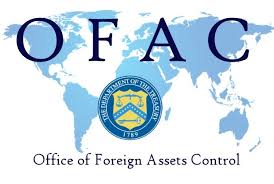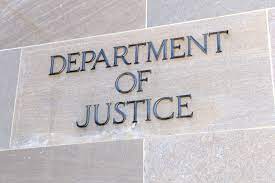The Coming Corporate Sanctions Enforcement Storm (Part I of II)

There are some things you learn best in calm, and some in storm. Willa Cather
I know I sound like a broken record. The Justice Department’s white collar criminal enforcement has been trending down over the last few years. The reasons for that are unclear — is it resources, difficulty and length of investigations or just lack of initiative?
Whatever the cause may be, one area that will be interesting in 2024 is criminal sanctions enforcement. DOJ’s planned aggressive push of criminal enforcement against companies and individuals for sanctions violations is about to be unleashed. There is no question that DOJ’s enforcement initiative is coming — it is just a question as to when.
Sanctions Enforcement Case Elements
We have already seen several examples of what aggressive sanctions enforcement will lookj like — as the new “FCPA,” we can expect several standard elements —
- Large Penalties — multi hundreds of millions, even reaching billions in ore egregious cases.
- Reward for Voluntary Disclosures
- Criminal Indictments, Deferred or Non-Prosecution Agreements
- Independent Compliance Monitors
- Parallel Regulatory Resolutions with OFAC, BIS and or DDTC
- Enhanced Compliance Remediation Requirements
- Individual Criminal Enforcement
How Will DOJ Identify Cases?

Like other enforcement areas, DOJ has a variety of sources for initiating enforcement actions. These include: (1) Voluntary disclosures; (2) Regulatory referrals from OFAC, BIS and DDTC; (3) Referrals from global financial institutions that flag transactions for potential sanctions violations; (4) International intelligence and law enforcement relationships that have been expanded in response to Russia and Iran Sanctions Programs; (5) Cooperating witnesses in prior cases and competitors who learn of illegal conduct; and (6) whistleblowers and disgruntled employees.
in the next few years, sanctions and export control enforcement will resemble FCPA enforcement — the model for DOJ corporate enforcement is well established through FCPA, healthcare fraud and other priorities.
Two Examples: British American Tobacco and SAP
DOJ has resolved two significant sanctions cases in the last few years. While the Binance, cryptocurrency fraud case resulted in a $4.3 billion resolution and included sanctions violations penalties of nearly $1 billion, the British American Tobacco case from 2023 and the SAP case from 2021, provide clear examples of DOJ’s sanctions-focused strategy.
DOJ and OFAC collected $629 million from British American Tobacco for its long-running scheme to sell cigarettes to North Korean customers. BAT set up a fake joint venture partner, pretended to divest its interest in North Korean business, and engaged in numerous illegal transactions with North Korean customers as a continuing source of income. BAT’s strategy was executed with the knowledge and complicity of senior BAT executives. OFAC achieved its largest penalty for a non-financial institution of $508 million. DOJ charged three individuals who facilitated the transactions.
In the SAP case, DOJ reached an $8 million settlement for SAP’s long-running scheme of providing downloads of SAP software and updates to customers and distributors in Iran. SAP engaged in extensive remediation and voluntarily disclosed its illegal conduct. In today’s environment, SAP would be lucky to receive a resolution at less than hundreds or millions for its illegal activities.

Candidates for Future Sanctions Enforcement
DOJ’s initiative will arrive with a splash. One possibility — Seagate’s blatant violation of Huawei export controls. BIS already reached its largest administrative penalty of $300 million. DOJ’s absence from the enforcement action was conspicuously noted. Seagate’s conduct was willful and blatant. They knowingly entered into illegal business despite the fact that its competitors publicly announced they would refuse to conduct business with Huawei.
Seagate’s trade off and decision reflected a calculated desire for profits weighed against the supposed “cost” of an enforcement action. If DOJ does not follow up on this factual scenario, it is hard to identify a more worthy case.
Seagate’s blatant disregard for the Huawei sanctions will find political support from Capitol Hill, which has been critical of Seagate’s conduct.















